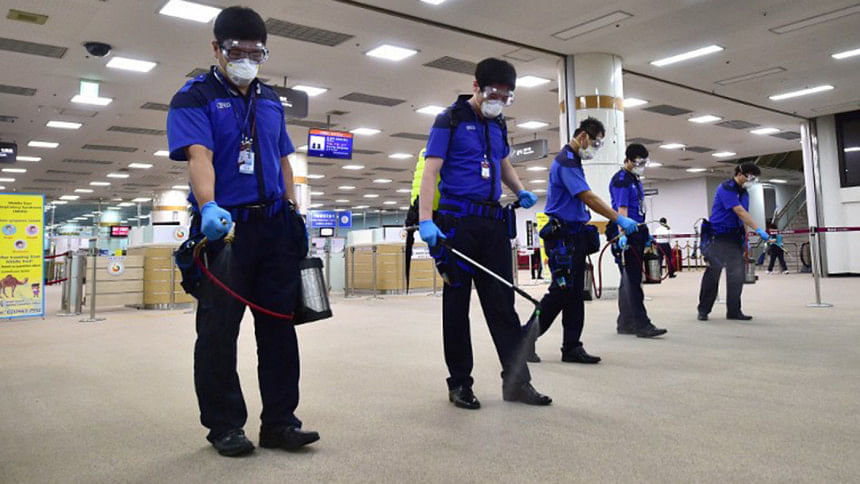South Korea declares 'de facto end' to Mers virus

South Korea's Prime Minister Hwang Kyo-ahn has declared a "de facto end" to the outbreak of the Middle East Respiratory Virus (Mers).
Hwang said that as there had been no new infections for 23 days, the public could be "can now be free from worry".
He also apologised for the government's much-criticised response to the virus, which has killed 36 people in South Korea, Yonhap news agency reports.
But the WHO said it was not yet declaring Mers officially over.
A spokeswoman in Manila said the WHO required 28 days without a new infection to make the announcement - twice the incubation period of the virus. The last case was confirmed in South Korea on 4 July.
South Korean Health Ministry official Kwon Duk-cheol said precautions, including screening at airports, would remain in place "until the situation comes to a formal end", AFP news agency reports.
"We still have many arrivals from the Middle East so there is always a possibility that new patients can come in," he added.
Middle East Respiratory Syndrome (Mers)
--Mers is caused by a coronavirus, a type of virus which includes the common cold and Sars (severe acute respiratory syndrome).
--First cases emerged in the Middle East in 2012, and the first death in Saudi Arabia in June that year.
--Believed to have originated in camels, though the transmission to humans is not fully understood.
--The virus does not pass easily between humans - infections usually occur in people who have had close contact with an infected person.
--Patients have a fever, cough and breathing difficulties, but Mers can also cause pneumonia and kidney failure.
--Approximately 36% of reported patients with Mers have died - there is no vaccine or specific treatment.

 For all latest news, follow The Daily Star's Google News channel.
For all latest news, follow The Daily Star's Google News channel. 



Comments